David Geffen
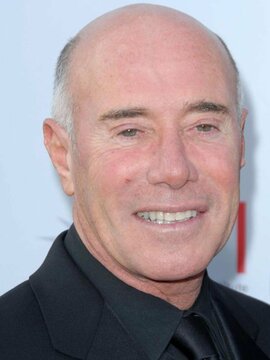
Record Producer • Businessman • Executive • Producer
Birth Date: February 21, 1943
Age: 81 years old
Birth Place: Brooklyn, New York
A notorious and high-powered media mogul, David Geffen rose from a working-class Brooklyn upbringing to become one of the most influential and successful entertainment magnates in history. An adroit businessman, Geffen founded both Asylum Records and Geffen Records, and went on to be one of the co-founders of the film studio DreamWorks, SKG. As a record producer, he helped establish performers as diverse as Joni Mitchell, Crosby, Stills, Nash & Young, the Eagles, and Guns N' Roses. Named one of Forbes magazine's richest Americans many times over, Geffen's net worth in 2006 was estimated at $4.4 billion. Also a well-known philanthropist, he provided funding and support to medical research, AIDS organizations, the Democratic National party, and the arts; after endowing UCLA's Medical Center with $200 million, the center was renamed The David Geffen School of Medicine. As famous in the tabloids as he was in the business world, Geffen's personal life made headlines many times over. He was linked romantically to both Cher and actress Marlo Thomas before publicly acknowledging that he was gay in 1992, and dealt with a four-year bout of cancer which later proved to be a misdiagnosis. With his overwhelming ambition and financial prowess, Geffen truly became the king of an entertainment empire.
Born Feb. 21, 1943 in Brooklyn, NY to Abraham and Batya Geffen, the youngster was raised in the predominately Jewish neighborhood of Borough Park. Though his school grades were generally poor while growing up, Geffen learned business skills from his mother, a Ukrainian immigrant who ran her own corset shop. He went on to attend college at the University of Texas in Austin where his brother, Mitchell, was also a student. Wanting to pursue a career in entertainment, however, Geffen soon dropped out. He began his new career by working in the mailroom at the William Morris Agency - a job he landed by supplying forged credentials. Showing a natural aptitude for show business, he eventually (and famously) worked his way up to agent. After leaving William Morris, Geffen went on to work for the Ashley Famous Agency as a music agent. In 1969, Geffen co-founded a talent management company with Elliott Roberts, with the hopes of representing a number of musicians he had discovered, including performers Laura Nyro and Joni Mitchell.
Combining his adept gift for recognizing talent with his business know-how, Geffen founded Asylum Records in 1971. Signing artists such as Jackson Browne and Linda Ronstadt, Asylum proved to be a successful venture and was acquired by Warner Communications a year later, merging with Elektra Records in 1972. Receiving $2 million in cash and $5 million in Warner Communications stock, Geffen became one of the company's largest shareholders. He served as president and chairman of Elektra/Asylum Records until 1975, when he crossed over to film and was named vice chairman of Warner Brothers Pictures. Supporting his love of music, Geffen opened the Los Angeles nightclub The Roxy in September of 1973. Located on L.A.'s famed Sunset Strip, Neil Young headlined the opening night of the club. After meeting popular entertainer Cher at the opening, Geffen began to date the singer. Though the pair would later plan to marry, Cher's divorce from Sonny Bono had not yet been finalized and the couple later split in 1974.
Suffering another personal setback, Geffen was diagnosed with bladder cancer in 1976, an illness he dealt with for four years before learning, in 1980, that he had been misdiagnosed. Rebounding professionally, he went on to form Geffen Records, signing John Lennon on as one of the company's first artists that same year. After a 4 year self-imposed exile from recording, the much anticipated Lennon album Double Fantasy, recorded with wife Yoko Ono, would end up being his last. Released in December of 1980, the album came out just days before Lennon's tragic assassination, which occurred shortly after the former Beatle returned home from the recording studio. Comforting a grieving Ono, Geffen rushed to the hospital and later issued a statement to the press on the widow's behalf. As could be expected, Double Fantasy sales skyrocketed. Geffen Records went on to sign a number of top artists, including Bob Dylan, Aerosmith, Guns N' Roses, Nirvana and Geffen's ex, Cher. Though the record company proved an instant success, artistic conflict quickly arose. After signing renowned artist Neil Young to the label under a strict recording contract, Young produced a number of experimental albums which proved less than successful commercially than his previous work. Geffen sued Young in 1984, on the grounds that he had submitted songs uncharacteristic to his usual sound. Though the lawsuit was later settled, Young left the label for Reprise Records in 1988.
Through the record label's companion firm, the Geffen Film Company, Geffen produced a number of successful films. Giving Tom Cruise his breakout performance, the company produced "Risky Business" in 1983 as well as the films "After Hours" (1985), "Lost in America" (1985), "Little Shop of Horrors" (1988) and "Beetlejuice" (1988). Never one to be confined to a single medium, Geffen branched out into theater, providing financial backing for the hit Broadway musicals "Dreamgirls" and "Cats," as well as the dramas "Master Harold...and the Boys" and "M. Butterfly." Capitalizing on his success with Geffen Records, Geffen sold the label to MCA for stock in 1990, netting a reported $710 million when MCA was sold to Matsushita in 1991.
In a bold personal move, Geffen came out publicly as a gay man in 1992, making the announcement at the Los Angeles AIDS Project Commitment to Life dinner. Geffen was later named Man of the Year 1992 by the gay and lesbian news magazine The Advocate.
In one of his most publicized ventures to date, Geffen went on to co-found a new movie studio - DreamWorks SKG - in 1994 with film director Steven Spielberg and former Disney studio head Jeffrey Katzenberg. Distributing films such as "American Beauty" (1999), "Gladiator" (2000), "Shrek" (2001), "Minority Report" (2002) and "Shrek 2" (2004), DreamWorks rose to become one of the top ten movie studios in Hollywood with more than 10 of its films grossing more than $100 million each. Geffen announced, however, in December of 2005, along with fellow business partners Spielberg and Katzenberg, that they had made a deal to sell the studio to Viacom, Paramount Pictures' parent company. Though DreamWorks Animation Studios remained independent, the deal specified that its films would be distributed worldwide through Paramount. Geffen finalized the deal in February of 2006.
Credits
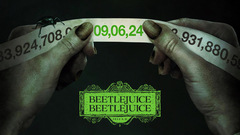
Beetlejuice Beetlejuice

Lost Angel: The Genius of Judee Sill

The Black Godfather
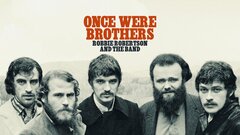
Once Were BrothersStream
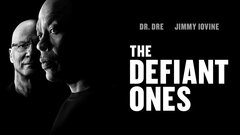
The Defiant OnesStream
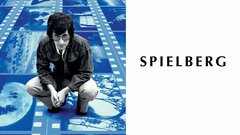
SpielbergStream

All Things Must Pass

The King of Hollywood: Inventing David Geffen

American Masters: Inventing David Geffen

Joni Mitchell: A Woman of Heart and Mind

Interview with the VampireStream



